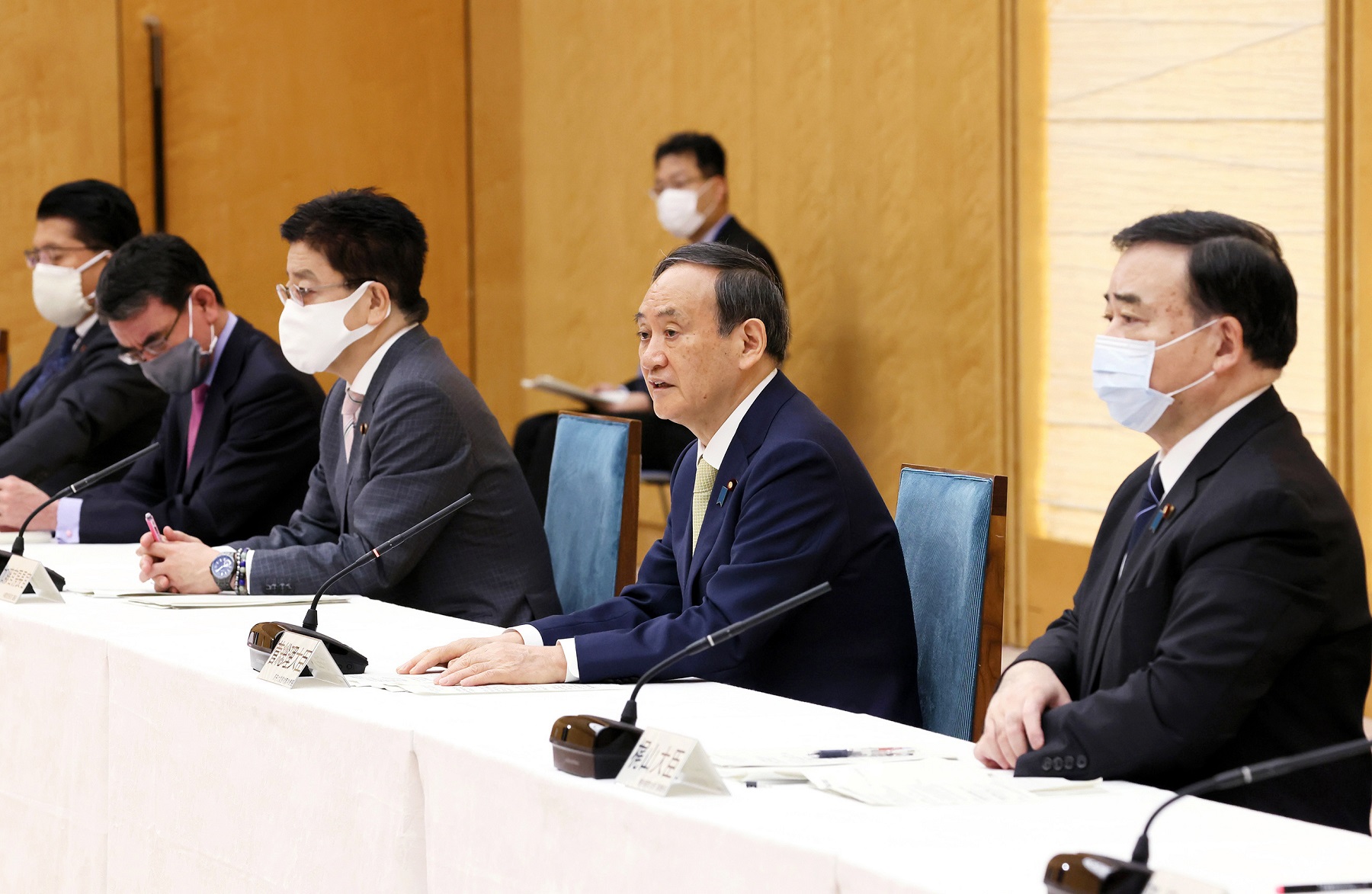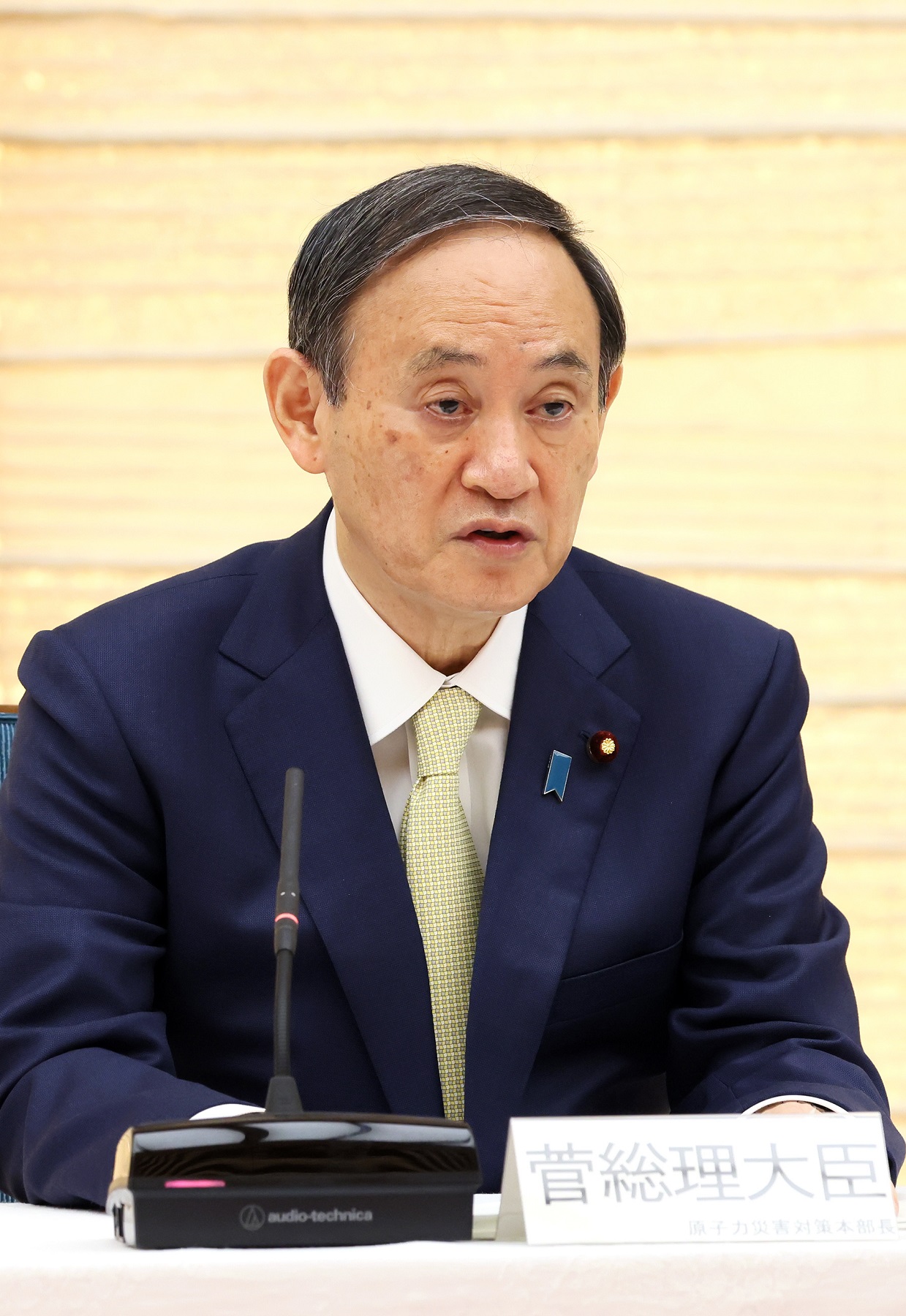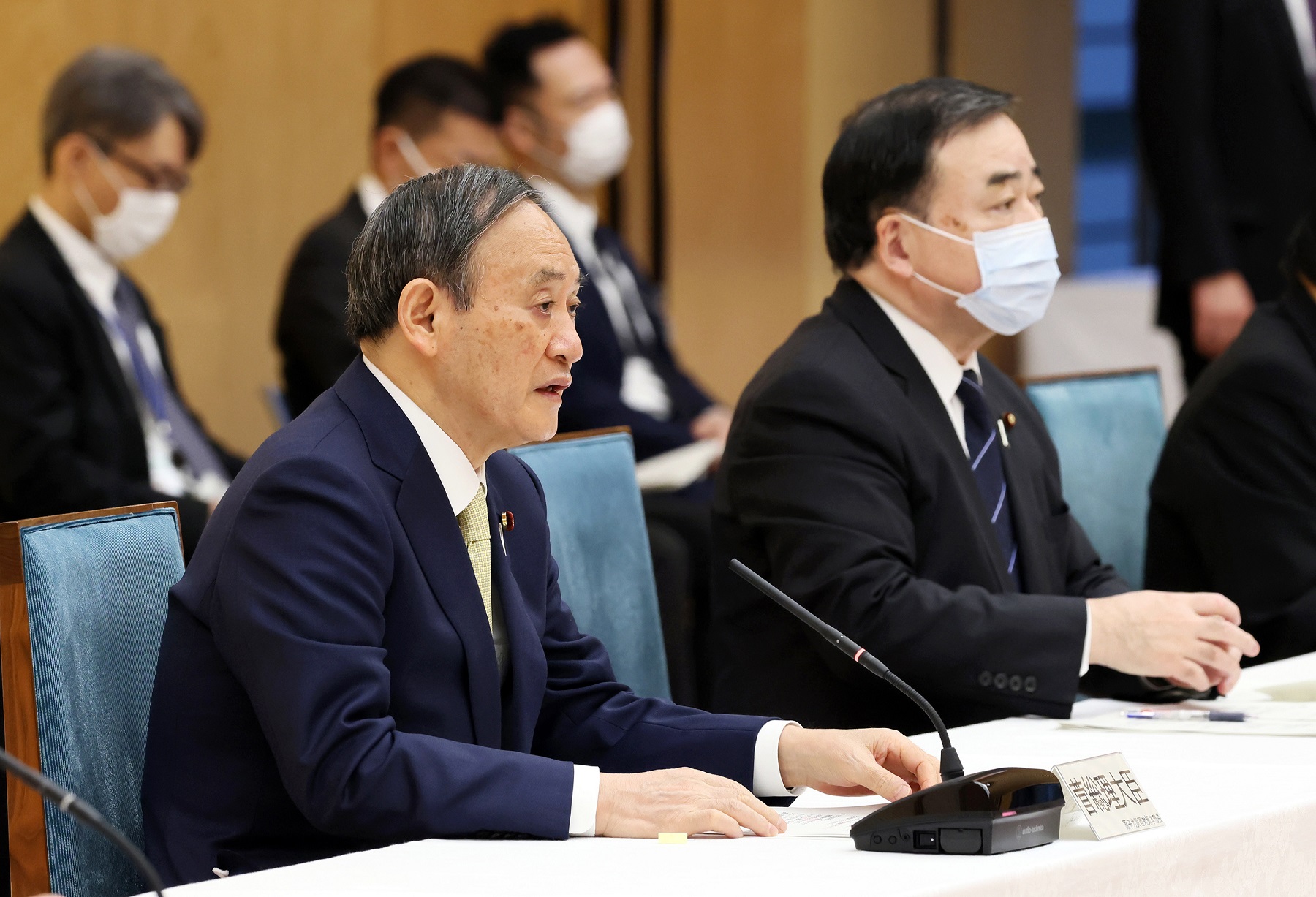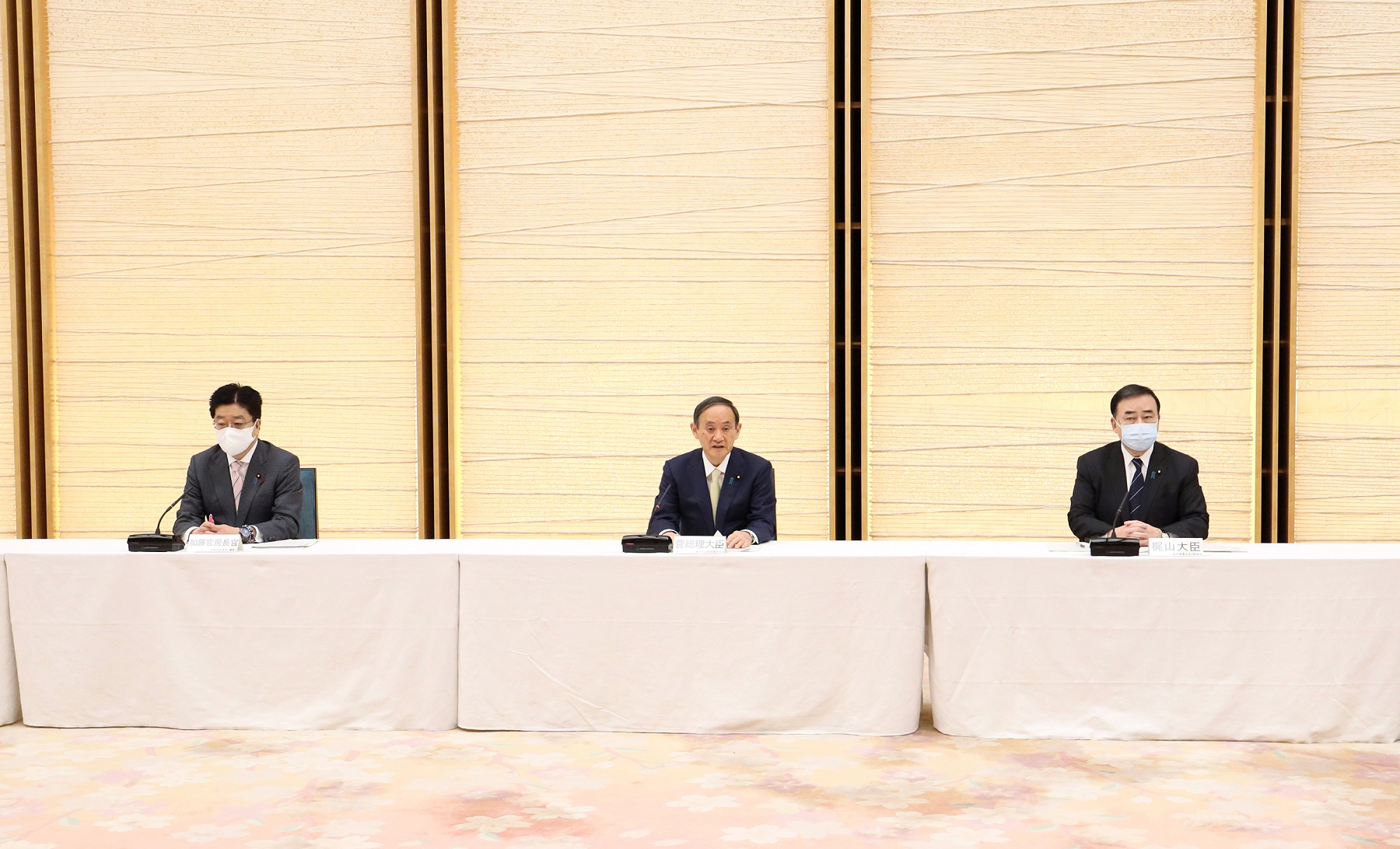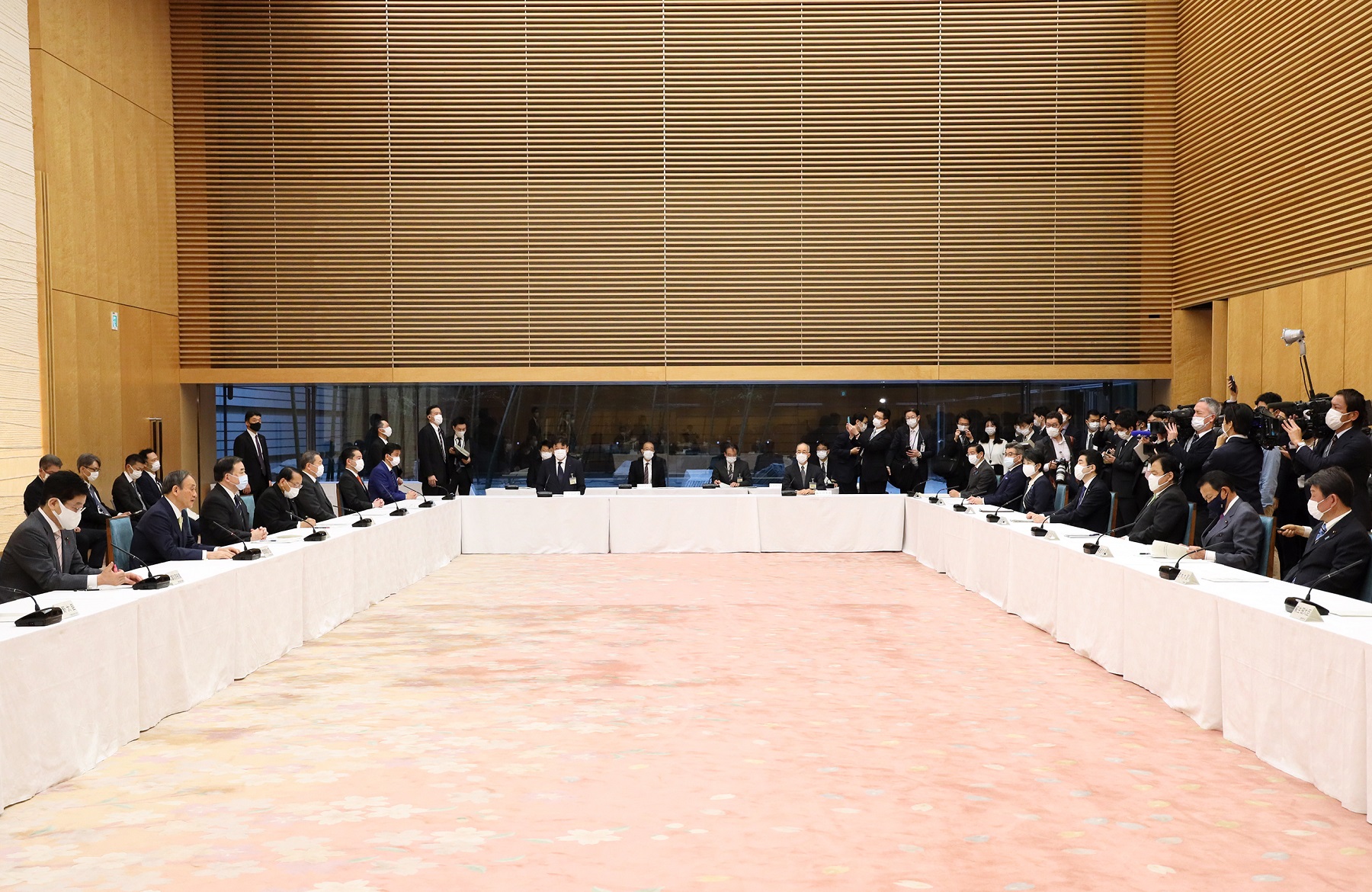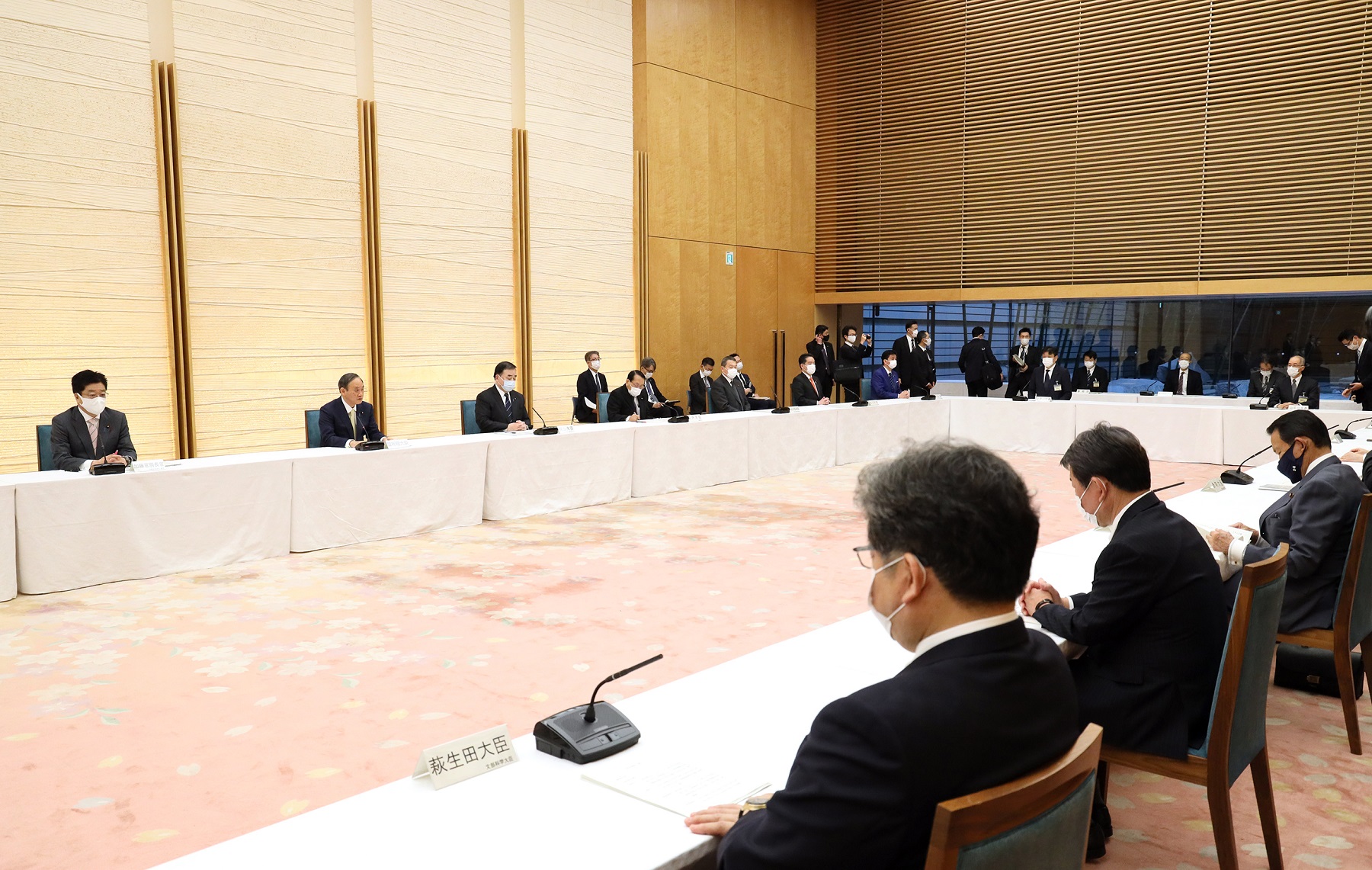Home > News > The Prime Minister in Action > April 2021 > Inter-Ministerial Council for Contaminated Water, Treated Water and Decommissioning Issues
The Prime Minister in Action
Inter-Ministerial Council for Contaminated Water, Treated Water and Decommissioning Issues
April 13, 2021
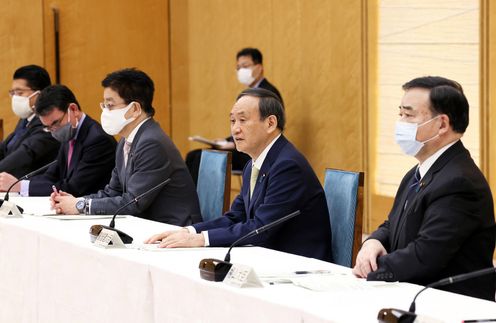
Photograph of the Prime Minister making a statement (1)
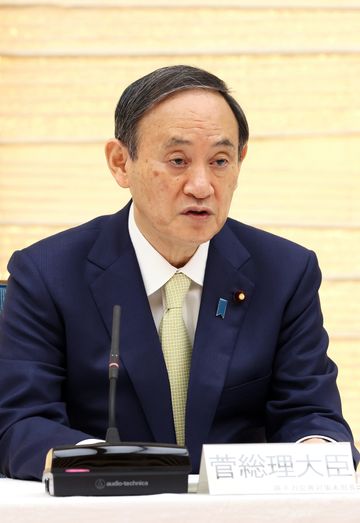
Photograph of the Prime Minister making a statement (2)
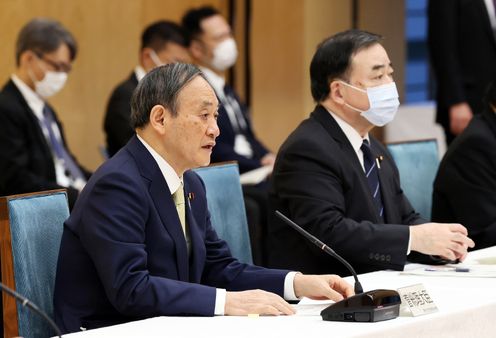
Photograph of the Prime Minister making a statement (3)
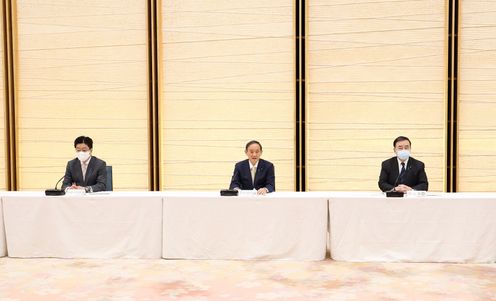
Photograph of the Prime Minister making a statement (4)
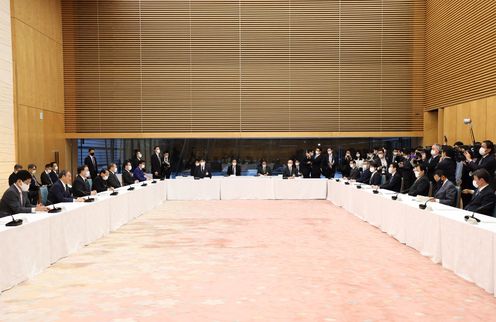
Photograph of the Prime Minister making a statement (5)
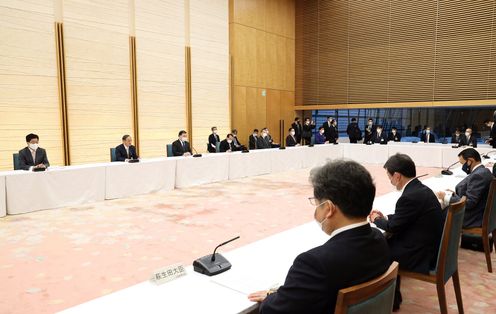
Photograph of the Prime Minister making a statement (6)
[Provisional Translation]
On April 13, 2021, the Prime Minister attended the 5th meeting of the Inter-Ministerial Council for Contaminated Water, Treated Water and Decommissioning Issues at the Prime Minister’s Office.
At the meeting, the participants engaged in discussions on the Basic Policy on handling of ALPS treated water at the Tokyo Electric Power Company Holdings’ Fukushima Daiichi Nuclear Power Station and the establishment of an inter-ministerial council toward the steady implementation of the Basic Policy on handling of ALPS (Multi-nuclides removal equipment) Treated Water.
Following the discussion, the Prime Minister said,
“The handling of ALPS treated water is a challenge we must face in order to make progress in the decommissioning of Fukushima Daiichi Nuclear Power Station.
Hence, while premised on securing the safety far higher than the standards and thoroughly implementing government-wide measures to respond to adverse impacts on reputation, we decided that discharge into the sea was the realistic option and compiled the Basic Policy today.
Experts have studied the issue for more than six years to date and published a report in February last year that discharge into the sea was more realistic than other options. The International Atomic Energy Agency (IAEA) also acknowledged that the conclusion of the report is based on scientific basis.
In addition, we will begin discharge into the sea in around two years, after constructing facilities and ensuring compliance with regulations. The concentration of tritium in treated water will be reduced to one-fortieth of the domestic regulatory standard value and one-seventh of the World Health Organization’s (WHO) guidelines for drinking water quality value. Furthermore, we will monitor the situation with a high degree of transparency, under scrutiny of the IAEA and other third parties.
Moreover, taking seriously the fact that people in the affected areas and fishermen, including those in Fukushima, have concerns over the adverse impacts on reputation, the Government will be united as one in dispelling their anxiety and sparing no effort to give detailed explanations. To that end, we will thoroughly present information and conduct PR activities with great care.
We will establish a new inter-ministerial council toward the steady implementation of the Basic Policy we decided today by the end of the week.
The Government will remain at the forefront in effectively ensuring the safety of treated water and take every measure to dispel the adverse impacts on reputation. I sincerely ask for the understanding of the citizens.”

